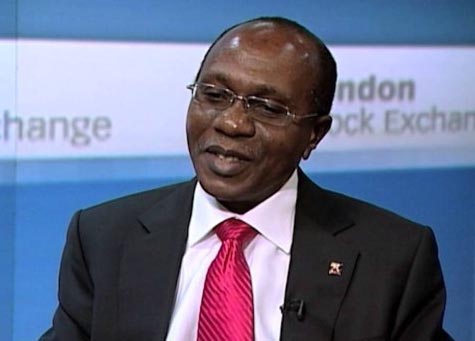
In order to address the challenge posed by the absence of a unique identity for bank customers which was militating against the effective implementation of the “Know Your Customer” principle, the Central Bank of Nigeria, in collaboration with the Bankers’ Committee, launched the Bank Verification Number project in February 2014. As part of the overall strategy for ensuring successful implementation of the project, the CBN set October 31, 2015 as deadline for all banks’ customers to have the BVN attached to their accounts warning that any bank customer without the BVN at the expiration of the deadline would be deemed to have “inadequate KYC”.
In order to ensure that the Nigerian banks’ customers in the Diaspora were carried along on the BVN project, the CBN extended the deadline for the registration of the bank customers in the Diaspora to January 31, 2016. Following the results of a survey at the end of January 2016 which revealed a very low percentage registration, the exercise was further extended to June 30, 2016 and again to December 31, 2016. The CBN also engaged the services of reputable consultants for the purpose of increasing access to registration centres especially in some cities with high population of Nigerians.
The BVN project, which involved capturing biometrics of customers, was intended to protect bank customers and further strengthen the Nigerian banking system. It was also expected to minimise the incidences of fraud and money laundering in the banking industry as well as enhance financial inclusion by opening up opportunities for credit to millions of Nigerians without a standard means of identification. Similarly, the adoption of the BVN as a condition for the purchase of forex was meant to reduce cases of multiple purchases, round tripping and illicit transfer of funds.
Indeed, it should worry every patriotic Nigerian that the country is among top sources of Illicit Financial Flows on the continent. The report of the Thabo Mbeki High Level Panel on Illicit Financial Flows from Africa adopted by the African Union Heads of State and Government at their 2015 summit in Addis Ababa, Ethiopia revealed that about USD40.9bn of an estimated USD60bn lost through such transfers from Africa was traceable to Nigeria.
That close to 46 million bank accounts had yet to be linked with the BVN (according to data from the Nigeria Inter-Bank Settlement System) more than three years after the BVN project was conceived leaves much to be desired. Against this backdrop, the recent order of the Federal High Court in Abuja directing the CBN and 19 Deposit Money Banks in the country to publish the names and identities of such accounts in the national newspapers sits pretty well with the CBN’s desire to have all bank accounts linked with the BVN.
But is this order made by Justice Nnamdi Dimgba Igwe demanding the publication of details of a bank customer’s account without the customer’s consent not in breach of the Banker’s Duty of Secrecy? This matter has since been settled in the celebrated case of Tourniers vs National Provincial Bank And Union Bank of England 1924, where it was held that the Duty of Secrecy was not absolute but rather qualified and that disclosure would be justified under compulsion of the law or where it was made in the interest of the public.
Clearly, this order of the Federal High Court is made in the public interest. The negative effect of illicit financial flows and money laundering on society and the economy cannot be over-stressed. Empirical literature documents the consequences of money laundering to include distortions on investments and savings, lower revenues for the public sector as well as increased crime and corruption. In fact, illicit financial flows and terrorist financing represent serious threats to the financial stability of any country. Little wonder, the Bank of Ghana and Bank of Zambia are reported to be understudying Nigeria’s BVN initiative with a view to introducing it into their banking system.
It goes without saying that the advent of the BVN in Nigeria has improved fiscal discipline in the public sector by helping to reduce payroll fraud. It has also enhanced the credit system in banks by assisting to sort out serial debtors already over-exposed to several banks. Without a doubt, full implementation of the BVN project would help to expose questionable sources of wealth such as those from crimes like kidnapping and theft of public funds. It will boost the government’s fight against corruption, improve the country’s image and promote investor confidence in Nigeria.
Therefore, the CBN should continue to ensure that financial institutions have thorough knowledge of their customers and their businesses and that banks operating in Nigeria are not used for the movement of illicit funds across the globe. To this end, it should closely monitor compliance with the standards for the BVN operations in the Nigerian banking industry contained in its “regulatory framework for BVN operations and watch-lists for Nigerian financial system”. The watch-list consists of a database of bank customers identified by their BVNs, who have been involved in confirmed fraudulent activities in the Nigerian banking industry.
A major function of the CBN is to promote a sound and stable financial system in Nigeria and combating money laundering and terrorist financing is a critical component of this role. Appropriate sanctions and penalties should be meted out to any bank that is in breach of the regulatory framework for the BVN operations in Nigeria. Indeed, it is time to dangle the big stick.
END

Be the first to comment